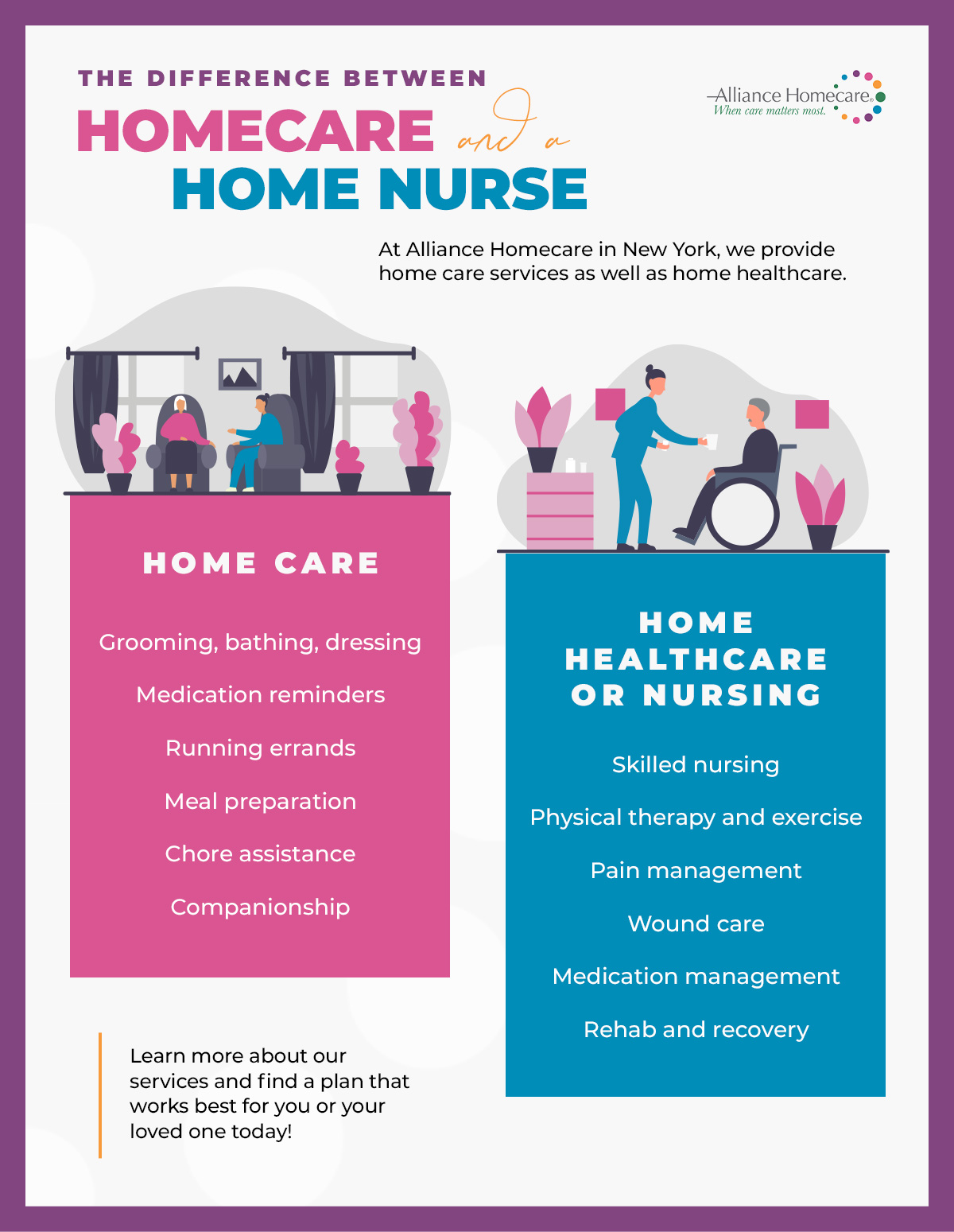The Relevance of Home Care in Impairment Assistance: Discovering NDIS Registered Solutions
Home care is a fundamental element of handicap assistance, particularly within the framework of NDIS registered options. It gives vital solutions that cultivate freedom and improve overall top quality of life for individuals with impairments. By supplying customized help, these services satisfy special demands and choices. The efficiency of home treatment depends on ongoing communication with NDIS coordinators. This dynamic relationship reveals deeper insights into the transformative potential of tailored assistance. What obstacles and successes arise in this developing landscape?
Comprehending the Role of Home Treatment in Handicap Assistance
Home care plays a vital function in the support of people with specials needs, offering substantial solutions that promote independence and boost quality of life. It includes a series of support tailored to fulfill the special requirements of each individual, consisting of personal treatment, family tasks, and mobility assistance. Educated caregivers offer friendship and emotional assistance, cultivating purposeful links that fight social isolation.Furthermore, home care services are created to adjust as conditions transform, making certain that people get the suitable degree of care throughout their lives. This flexibility permits for the integration of brand-new therapies or modern technologies that might arise. By prioritizing the person's choices and routines, home care encourages them to maintain control over their everyday tasks. Eventually, the role of home care in handicap assistance is necessary, as it not only offers useful help however additionally verifies the self-respect and freedom of those it offers.

Advantages of Personalized Assistance in the house
Individualized help in your home offers numerous advantages tailored to private demands - support at home. By creating tailored assistance plans, caretakers can significantly improve the self-reliance of people with disabilities. This strategy not just promotes freedom however additionally fosters a sense of dignity and self-regard
Tailored Assistance Strategies
Customized assistance strategies play a necessary role in boosting the lifestyle for people with specials needs. These individualized plans are developed to attend to the unique needs and choices of each individual, making sure that assistance services align with their specific goals and lifestyle. By involving customers in the preparation procedure, tailored assistance plans foster a feeling of ownership and empowerment. This individualized technique enables caretakers to supply appropriate assistance, whether it entails daily living activities, social engagement, or ability advancement. Additionally, customized plans can adapt to changing conditions, reflecting the developing needs of the person. Eventually, this tailored assistance improves not just daily functioning but also psychological health, enhancing the value of a personalized strategy in special needs support solutions.
Boosted Self-reliance Opportunities
People with specials needs profit considerably from personalized support in the house, as it promotes improved self-reliance possibilities. Tailored assistance permits individuals to engage in day-to-day tasks with greater confidence and autonomy. Home treatment solutions can consist of assistance with personal treatment, dish preparation, and home monitoring, enabling customers to keep their preferences and routines. This customized technique promotes a feeling of control, empowering individuals to choose that reflect their special demands and objectives. Additionally, the comfort of home develops a familiar atmosphere, reducing stress and anxiety and enhancing emotional wellness. On the whole, customized aid not only supports necessary day-to-day tasks yet likewise grows an extra independent lifestyle, enabling people with disabilities to grow within their neighborhoods and attain greater individual fulfillment.
Review of NDIS Registered Home Care Providers
NDIS signed up home treatment solutions incorporate different kinds of assistance customized to individuals with impairments (home care providers). Comprehending eligibility and access to these solutions is crucial for making the most of the benefits of NDIS support. This summary will certainly highlight the vital facets of home care under the NDIS framework
Types of Home Care
Home treatment solutions play an important function in sustaining individuals with disabilities, supplying an array of options to fulfill diverse requirements. NDIS signed up home care services include personal care, which helps people with everyday activities like bathing and clothing. Residential assistance helps maintain a tidy and risk-free living atmosphere, while respite treatment offers momentary relief for main caregivers. Area gain access to services enable engagement in social and leisure tasks, cultivating freedom and connection. Furthermore, nursing treatment delivers clinical support in your home, ensuring health and wellness requirements are fulfilled. Treatment services, including work-related and physical rehabilitation, aid in rehabilitation and ability development. With each other, these numerous sorts of home treatment contribute considerably to enhancing the lifestyle for people with disabilities.
Eligibility and Accessibility
How can one access the important home care solutions provided under the NDIS? To qualify for these solutions, people have to fulfill particular qualification requirements outlined by the National Impairment Insurance Policy System. Applicants should demonstrate a significant and permanent impairment that impacts their day-to-day performance. The process begins with sending an Accessibility Demand Type, that includes documentation of the disability and its effect on additional reading every day life. As soon as approved, people obtain an individualized strategy describing their required supports, including home care solutions. These solutions can be accessed with NDIS-registered companies, who have to comply with stringent high quality and security standards. Comprehending these actions warranties people can efficiently navigate the NDIS system to obtain the necessary assistance for their home treatment needs.
Benefits of NDIS Support
Accessing essential support via registered services offers people with impairments a transformative possibility to boost their lifestyle. NDIS signed up home treatment services supply customized aid, making sure that each individual's distinct needs are fulfilled. These solutions include a vast array of supports, including individual care, flexibility help, and restorative solutions, all created to promote independence and health. Furthermore, registered service providers abide by strenuous high quality standards, guaranteeing a high level of care and safety. Individuals also gain from increased versatility, enabling them to select service delivery methods that best suit their lifestyles. Inevitably, NDIS assistance cultivates a feeling of area and empowerment, enabling people with disabilities to engage more fully in their everyday lives and accomplish personal goals.
Customizing support to individual requirements is important in special needs treatment, as everyone's choices and conditions vary significantly. The National Handicap Insurance Plan (NDIS) stresses the significance of individualized treatment strategies that mirror the distinct goals and requirements of each participant. This method allows caretakers to concentrate on certain locations such as movement support, daily living abilities, and psychological blog assistance, making certain that services are efficient and appropriate.
Enhancing High Quality of Life With Home Treatment
While several people with disabilities face special obstacles, home care solutions can considerably enhance their lifestyle by giving tailored assistance in acquainted surroundings. These solutions cultivate self-reliance, enabling individuals to take part in everyday tasks that promote self-worth and individual satisfaction. Via personalized treatment strategies, home treatment service providers can attend to particular needs, whether it involves assistance with personal health, meal preparation, or drug management.Moreover, home treatment facilitates social interactions, encouraging links with friends and family, which are essential for emotional health. By staying in their own homes, individuals experience a sense of security and connection, reducing stress and anxiety related to unknown environments. Furthermore, caretakers can provide companionship, helping to minimize sensations of seclusion. In general, home treatment not only addresses physical requirements but also enriches the social and emotional dimensions of life for individuals with specials needs, ultimately bring about an extra satisfying and pleasurable presence.
Browsing the NDIS for Home Care Solutions
Directing with the National Special Needs Insurance Scheme (NDIS) can greatly impact the effectiveness of home treatment options for people with disabilities. Understanding the NDIS framework is necessary for participants seeking appropriate financing for home care services. This procedure starts with determining individual demands and objectives, which helps in tailoring support strategies that straighten with the participant's requirements.Navigating the NDIS entails familiarizing oneself with the eligibility standards, application treatments, and the planning process. Participants have to involve with NDIS organizers to discuss their particular circumstances and wanted results. This dialogue ensures that the essential home treatment solutions, such as individual treatment, aid with day-to-day living, and healing support, are included in their plans.Furthermore, remaining upgraded on NDIS plans and any type of adjustments in financing can encourage participants to make enlightened selections regarding their home care alternatives, ultimately boosting their freedom and high quality of life.
Success Stories: Equipping Lives Via Home Treatment
Home treatment services have transformed the lives of lots of people with specials needs, demonstrating the extensive influence of tailored support. Sarah, a young lady with analytical palsy, acquired independence via customized home treatment support that allowed her to manage everyday tasks and take part in community activities. John, who has autism, profited from a dedicated caregiver that aided him develop social abilities and foster meaningful partnerships, enhancing his quality of life. These success tales highlight just how home care not just fulfills physical requirements however also advertises emotional wellness. Households report boosted satisfaction, understanding their liked ones get compassionate and expert support in an acquainted atmosphere. As these examples highlight, home care empowers people with handicaps to grow, motivating self-sufficiency and boosting general life satisfaction. The transformative impacts of such solutions underscore the importance of home care in the wider context of handicap assistance.

Frequently Asked Inquiries
Just How Can I Locate NDIS Registered Home Care Providers in My Location?
To find NDIS signed up home care carriers in a specific area, individuals can visit the NDIS site, use the provider finder device, or get in touch with local disability assistance organizations for suggestions and assistance.
What Certifications Should Home Care Employees Possess for Impairment Assistance?
Home care employees for handicap assistance must preferably possess credentials such as a Certificate III in Individual Assistance, pertinent experience, solid communication abilities, compassion, and knowledge of impairment civil liberties and person-centered care techniques.
Exist Any Costs Connected With NDIS Registered Home Treatment Solutions?
Expenses connected with NDIS signed up home treatment services can vary based upon private demands, provider, and the level of care required. Individuals ought to review their plans to recognize specific funding and prospective out-of-pocket expenditures.
Can Home Care Services Accommodate Specific Social or Language Needs?

How Frequently Can I Change My Home Treatment Assistance Plan?
Individuals can commonly transform their home care assistance plan as required, frequently a minimum of yearly or upon substantial life modifications. Regular reviews ensure that the strategy continues to be relevant and successfully addresses advancing individual conditions and demands. Educated caregivers supply friendship and emotional support, cultivating significant connections that battle social isolation.Furthermore, home care services are developed to adjust as circumstances change, making certain that people receive the appropriate degree of care throughout their lives. Home care solutions can consist of help with individual care, dish prep work, and house administration, making it possible for customers to maintain their preferences and routines. NDIS registered home care services consist of individual care, which aids people with everyday activities like bathing and clothing. With customized care strategies, home treatment service providers can address details demands, whether it involves aid with individual health, meal preparation, or medicine management.Moreover, home care assists in social communications, encouraging links with family members and close friends, which are vital for emotional well-being. Prices associated with NDIS signed up home care services can differ based on specific requirements, service suppliers, and the level of care called for.